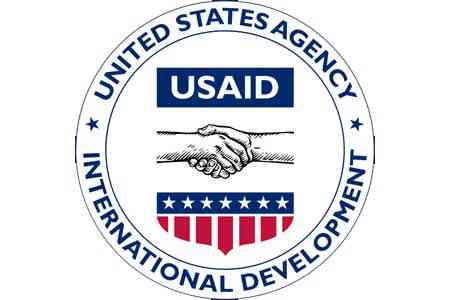


ArmInfo. The World Food Program (WFP) Armenia office hosted a delegation from the United States Agency for International Development (USAID) Bureau of Humanitarian Assistance, who arrived in Yerevan on a two-day visit to assess the support provided to refugee families from Artsakh.
As reported by the press service of the UN Office in Yerevan, during the visit, Regional Humanitarian Adviser Adrine Tumayan and representatives of the delegation met with local government representatives, social workers and refugee families who have received assistance from USAID's Bureau of Humanitarian Assistance. In Ararat and Kotayk marzes, they held comprehensive discussions with representatives of the Governor's office and social workers to assess the impact of recent conflicts on refugee families and identify their needs.
" It was a particularly warm but difficult visit to the 90-year-old grandmother of a refugee family living in the city of Hrazdan, Kotayk region, who takes care of her three orphaned grandchildren and a disabled son. Displaced and losing their documents, this family has gone through untold hardships to take care of their primary needs. The family is also unable to fully benefit from state support," the UN office reported, adding that thanks to the support of USAID's Bureau of Humanitarian Assistance, the family received three-month food packages. "This support has been vital for them," the UN office added.
It is also noted that the team reviewed the processes of food distribution to Artsakh refugees and discussed the large-scale needs of the forcibly displaced. In this regard, it was recorded that Kotayk recorded the largest number of refugees, creating a need for substantial support. In conclusion, it is reported that with $1.13 million in support through the US Government's Office of Humanitarian Assistance, WFP Armenia provided vital food assistance to nearly 30,000 refugees over a seven-month period. Food packages were distributed in different marzes from February to September 2024, and food assistance cards were provided to refugees from June to the end of July 2024. This support contributed to meeting basic needs and ensured the well-being of displaced families.
To recall that since the enemy aggression that began in the fall of 2020 and ended in September 2023 with the complete ethnic cleansing of Artsakh, over 150, 000 Artsakh residents have become homeless.